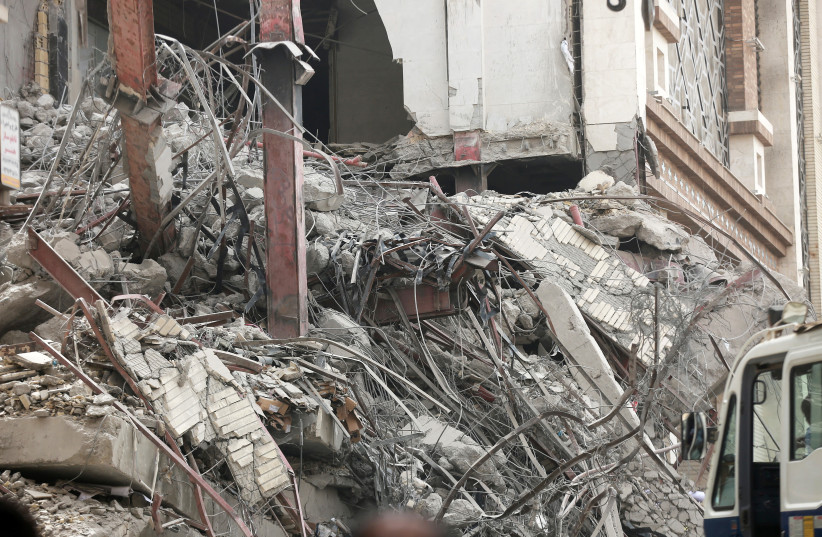Rental prices in Iran have risen dramatically in recent years, Iran’s pro-regime Tasnim News Agency recently reported.
According to recent statistics published by the deputy minister of housing and construction, rental costs in Tehran have increased by about 880% since 1990 until this May, Tasnim’s economic correspondent wrote. Even though successive Iranian governments attempted to institute price controls, apparently this hasn’t worked.
The article by Tasnim likely reveals just the tip of the iceberg in terms of how bad things have gotten. Iran is suffering from inflation and a variety of economic problems, as are other countries. The economy has been harmed by the pandemic and supply-chain problems. Sanctions that are in place and the mismanaged economy mean the Islamic Republic is already vulnerable.
Tehran also wastes money on military programs, leaving the people to suffer and resulting in many protests. The recent collapse of a building in Abadan also led to mass protests.
The article seeks to blame the previous Iranian government for the problems. This is how state media can critique the government without critiquing the government – by pretending to blame “previous” administrations. But the evidence is clear. Rents increased 50% last winter in general and 51% in Tehran, while many cities also saw double-digit increases, the report said.
Who is to blame?
“Some governments and parliamentarians have always cited real estate consultants as one of the causes of the housing market turmoil, especially in the rental sector,” the report said.

However, the real-estate experts blame the banks, saying, “Banks are the cause of the disorder in this sector.” Others say Iran must match supply with demand.
“In previous governments, rental prices increased from 7% to 13% with the agreement of the landlord and tenant,” the report said. “Due to the inflation of the country, the owners of the property, which they bought for one billion tomans [$31,500] this year, will make several times more profit next year, but the tenants will have to move to the outskirts of the cities due to inflation.”
Iran, like the rest of the world, is suffering from inflation. There are other problems as well. There are apparently vacant or unused housing units in Iran. The current government is also being advised to increase construction and to build almost a million new housing units. The government might also try to “control” the market.
The Tasnim article lays the blame on the “incompetence of the previous government as the reason for the tenants’ troubles today.”
“Meanwhile, the Ministry of Roads and relevant officials do not provide much information about rental housing and are not willing to provide explanations to the media,” the report said.
Tasnim is not entirely in favor of price controls.
“The reality is that economic markets, especially the housing sector, cannot be controlled by order,” the report said. “This area is in a state of disarray due to the inaction of the previous government, and the strong stimulation of demand by the former minister of roads and urban development [is also responsible]; this sector should be saved from this situation with a comprehensive plan.”
What the article reveals is the chaos inside Iran and how the country is sitting on a tenuous economic system that the government has eroded even more. The regime puts on a brave face and talks about “resistance.” However, this is a distraction from the overall failures at home and the current complexities related to supply-chain problems and inflation.
Ironically, Iranians are facing the same difficulties that people in the US or Israel are facing in terms of economics. But Iran prefers to encourage conflict rather than look at the struggle for economic success as one that the whole world must face together.
Ultimately, the blame game will fall on the former government, but the real insight of articles like this is that Iran is struggling at home.
